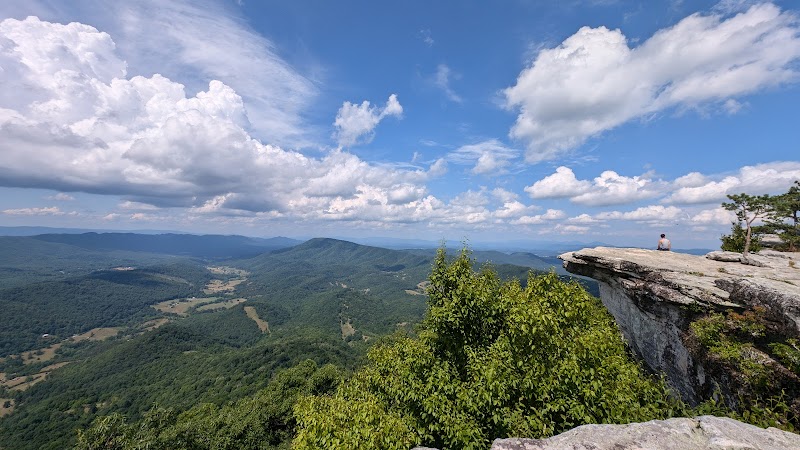
Hook, Line, and Tackle: Navigating Local Fishing Tournaments in King George, Virginia
Experience the thrill of fishing tournaments in King George, Virginia, where the Potomac and Rappahannock Rivers challenge anglers with shifting currents and strategic waters. This guide offers insight into local events, gear, and timing to help you make the most of your fishing adventure.
Scout Tournament Schedules Early
Most local fishing tournaments in King George happen during early spring and late summer. Check community boards and marina schedules in advance to secure your spot.
Use Versatile Tackle
Bring a mix of live bait and artificial lures to adapt to shifting fish behavior influenced by water temperature and clarity.
Dress for Variable Weather
Riverbanks offer little shade at times; lightweight, UV-protective clothing paired with a broad-brim hat will shield you without overheating.
Stay Hydrated and Take Breaks
Tournament durations last several hours; carry ample water and plan short rests to maintain alertness and focus on your technique.
Hook, Line, and Tackle: Navigating Local Fishing Tournaments in King George, Virginia
King George, Virginia, pulses with quiet anticipation as anglers gather along the Potomac and Rappahannock Rivers to test their skills in local fishing tournaments. These contests offer more than just competition; they invite a direct handshake with waters that are both generous and unpredictable, compelling participants to adapt and respect the currents pushing against their lines.
Tournaments here range from community-focused weekend events at public access points like Caledon State Park to more organized competitions at local marinas. The terrain is as much a part of the challenge as the fish. Whether wading the shallow edges peppered with submerged grasses or casting from a boat where shifting winds dare you to hold steady, each cast becomes a negotiation with the environment.
Expect a practical approach: tournament schedules typically unfold in early morning hours when fish are most active, and daylight molds shadows on the water’s surface. Participants are advised to come prepared with varied tackle, matching live bait or artificial lures to local species such as largemouth bass, catfish, and striped bass. Hydration and sun protection are non-negotiable, given the often exposed riversides.
The competitive spirit here is tempered by camaraderie and a deep knowledge shared around unassuming shorelines. Observing local patterns—like where underwater structures attract the biggest catches or which banks hold the elusive trophy fish—can shift the edge in your favor. You'll find that patience is a skill as relevant as sharp reflexes.
For visitors thinking beyond good fishing, tournaments provide a practical glimpse into King George's riparian ecosystem. Early spring brings the resurgence of plant life and spawning grounds alive with activity, while late summer evenings offer fiery sunsets that paint the sky and reflect on glassy river surfaces.
Ultimately, these tournaments are an invitation to engage with King George as a living, breathing entity—fierce in its natural rhythms, generous to those who respect its flow. Pack your gear, plan for hydration breaks, and prepare for a day where the challenge lies as much in reading the water as in landing the perfect catch.
Nearby Trips
All Adventures
Boat Charters
Water Activities
Adventures near King George, Virginia
Discover the unique and memorable adventures that make King George, Virginia special.
Frequently Asked Questions
What types of fish are most commonly targeted in King George tournaments?
Local tournaments focus mainly on largemouth bass, catfish, and striped bass, all abundant in the Potomac and Rappahannock Rivers. Seasonal behavior affects availability, so checking with tournament organizers for specific target species is helpful.
Are fishing tournaments open to all skill levels?
Yes, many local events welcome beginners and seasoned anglers alike, often grouping participants by experience to keep competition fair while encouraging community involvement.
Where are the best public access points for participating in tournaments?
Caledon State Park and local marinas provide reliable launch sites. Shoreline access varies, so early arrival is recommended to secure space in popular spots during tournament days.
What environmental practices are encouraged during these tournaments?
Catch and release is commonly encouraged to sustain fish populations. Participants are urged to minimize disturbance to riverbanks and properly dispose of tackle and waste to protect these ecosystems.
Is it necessary to have a fishing license to join a local tournament?
Yes, Virginia law requires anglers to have a valid fishing license. Tournament organizers usually verify licenses during registration to comply with state regulations.
Are there notable wildlife species beyond fish to observe during tournaments?
Look for great blue herons stalking along the water’s edge and osprey that soar above, eyes fixed on potential prey. These river guardians often add an immersive wildlife element to the fishing experience.
Recommended Gear
Multi-action Fishing Rod
A versatile rod helps you adapt quickly between casting zones and types of lures, crucial in ever-changing river environments.
Polarized Sunglasses
Polarized lenses cut glare on sunlit water, improving visibility of fish shadows and underwater structures.
Hydration Pack
Keep fluids close in longer tournaments and under the sun’s pressure, ensuring steady focus and endurance.
Waterproof Wading Boots
Spring’s soggy banks and shallow waters require secure footing; these boots provide grip and protection in wet terrain.
Local Insights
Hidden Gems
- "Hidden Cove at Caledon State Park with calm waters ideal for early casting."
- "The narrow bends near Fairview Beach where striped bass are known to gather."
Wildlife
- "Great blue heron"
- "Osprey"
- "River otters"
- "Bald eagles in nesting season"
History
"King George County’s rivers have long supported communities from indigenous tribes through colonial times, serving as a lifeline for trade, sustenance, and settlement patterns. Fishing remains a living connection to this heritage."
